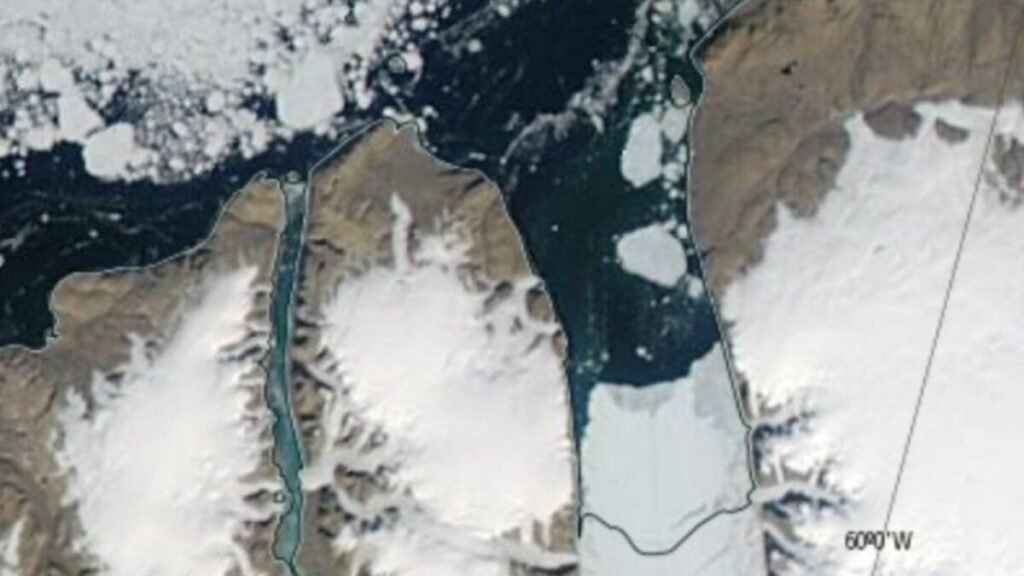The unsettling impact of melting in Greenland: an invisible boom threatening the ecosystem

Greenland has become a symbol of climate change: its melting affects sea levels, the sinking of the ocean floor, and now also marine life. NASA researchers and several universities have discovered that the freshwater released by glaciers is driving uncontrolled growth of phytoplankton, with unexpected consequences.
### Freshwater disrupting the balance
In the last 30 years, Greenland has lost 1.6% of its ice, equivalent to the surface area of Galicia. The Jakobshavn glacier, one of the largest, releases up to 266 million tons of freshwater into the sea annually, equivalent to 1,200 cubic meters per second.
Being less dense than saltwater, this current generates swirls that carry nutrients such as iron and nitrates. These nutrients directly feed phytoplankton, which multiplies at unprecedented rates.
It is difficult to show how crucial Greenland and its kilometers-thick ice sheet are for climate change. If all that ice were to melt, the sea level would rise about seven meters, the height of a house.
### Uncontrolled growth
The study, published in *Nature*, used simulations from MIT and [insert source] to analyze this phenomenon. The results show that phytoplankton grows between 15% and 40% during the summer, coinciding with the peak of melting.
Even more worrying: between 1998 and 2018, growth in Arctic waters increased by 57%. At first glance, it might seem beneficial—more food for marine fauna and increased CO₂ capture—but researchers warn that this disruption breaks ecological balances established over centuries.
### Risks for marine life and fishing
Phytoplankton is the basis of the food chain. It feeds krill and other small herbivores that are essential for fish, birds, and whales. Such a drastic alteration in their abundance and seasonality can modify the species composition in the area and local fishing.
In addition, excess nutrients and changes in water salinity can trigger eutrophication processes or alter marine chemistry, with long-term effects that are difficult to predict.
### A phenomenon beyond Greenland
Although the study focused on Jakobshavn, the simulation model can be applied to other regions of the planet where glaciers flow into the sea. Everything points to this phenomenon not being isolated but global.
Therefore, melting ice not only raises sea levels but is rewriting the ecology of the oceans. What happens in Greenland is a warning of what could spread to other latitudes.






